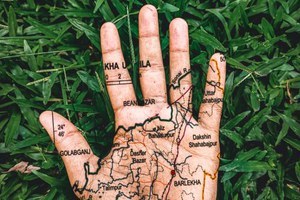How are global strategies for climate resilience connected to unequal economic development? What links exist between changes in the labour market and the emergence of new forms of subjectivity? How can we rethink migration in light of broader social and environmental processes?
These are some of the questions tackled in Oltre i confini (Beyond Borders), the University of Bologna’s new podcast available on Spotify, dedicated to the many ongoing changes and how to understand and address them. The series features contributions from researchers and experts who helped shape its six episodes. The stories cover topics ranging from the movement of goods and people to migration, from tourism to climate justice and environmentalism, offering a global geography in which the multiple trajectories of human development intersect in unexpected ways—helping us navigate the present.
In the first episode, Timothy Raeymaekers, professor of Political and Economic Geography, discusses capital frontiers and labour geographies, highlighting the relationship between economic, social, and political inequalities and global labour chains, while exploring possible shifts in direction.
The second episode features Professor Emanuele Leonardi, who teaches Sociology of Economic and Labour Processes. He reflects on environmentalism, climate justice, and political ecology, with a focus on today’s climate crisis in the context of new war scenarios.
Paolo Azzurro, an environmental engineer and expert in waste management, leads the third episode. He explores the idea of (im)possible growth by asking: can further increases in consumption allow us to continue living and thriving on our planet? How are current production and consumption models related to the distribution of natural resources and wealth?
In the fourth episode, Professor Elisa Magnani discusses new geographies of tourism and the contribution of the humanities in understanding the social, cultural, and territorial dimensions of climate change—and how these changes affect mobility, especially tourism.
Climate justice and mobility justice are the focus of the fifth episode, featuring Elena Giacomelli, researcher in Sociology and Public Economic Law, and Professor Pierluigi Musarò, who teaches Sociology of Cultural and Communication Processes. Together, they explore the connection between the climate crisis and migration, and how this relationship is portrayed in the media.
The series concludes with Andrea Zinzani, researcher in Human Geography, who reflects on radical geography and the intersections between geography, politics, and conflict.


